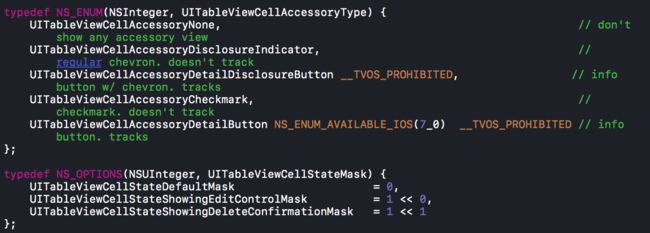- 全方位解析:AWS vs. Azure vs. Google Cloud
如果你的业务正在增长,并且正在寻求以云服务形式获取IT方面的帮助,那么实际上只有少数供应商可供选择,差不多就是AWS、MicrosoftAzure、GoogleCloud、IBMCloud这几个。当然,还有其他优质公司,包括阿里巴巴、Salesforce、腾讯、甲骨文、戴尔EMC、Rackspace、Equinix以及其他二级和三级玩家。它们的特点在于更小、更个性化——这是许多企业喜欢和寻求的。本
- 黑客 vs. 网安:谁才是数字世界的主宰? 2024年信息安全人员应该重点学什么?
网安导师小李
程序员编程网络安全linux运维服务器excelweb安全pythonjava
在当今数字化飞速发展的时代,信息安全问题日益严峻。黑客攻击、数据泄露、网络病毒等威胁不断涌现,企业和个人的隐私安全岌岌可危。随着人工智能、物联网、云计算、区块链等新技术的兴起,信息安全行业正面临着新的挑战和机遇。2024年信息安全行业面临的挑战和机遇**1.人工智能(AI):**AI技术的广泛应用使得攻击者能够利用机器学习和自动化技术进行更具针对性的攻击。例如,恶意软件可以通过AI算法不断自我进化
- 大语言模型应用提示工程Prompt Engineering
全栈你个大西瓜
人工智能大模型自然语言处理prompt人工智能提示工程
提示工程(PromptEngineering)是指通过精心设计和优化输入提示(prompt),以引导人工智能模型(如大型语言模型)生成更符合预期的输出。一、提示工程的核心任务明确任务目标确定模型需要完成的具体任务(如文本生成、翻译、分类、问答等)。示例:需要模型生成一篇产品评测vs.需要模型总结文章要点。设计提示结构包含必要的上下文、示例、格式要求和约束条件。示例:请根据以下产品参数生成一段吸引人
- EventBridge精准之道:CloudTrail事件 vs. 服务原生事件,我该如何选?
运维开发王义杰
aws系统运维aws运维
当我们深入使用AWSEventBridge时,常常会发现一个有趣的现象:对于同一个操作(比如启动一个EC2实例),EventBridge中似乎会出现两种事件。一种来自CloudTrail,记录了API调用的行为;另一种则直接来自EC2服务本身,描述了实例状态的变化。这引出了一个至关重要的问题:在创建EventBridge规则时,我应该监听哪一种?它们有什么区别?{"source":[{"prefi
- 噪声预测 vs. 数据预测:扩散模型中的目标函数选择与生成表现对比
观熵
扩散模型工程指南机器学习算法人工智能
噪声预测vs.数据预测:扩散模型中的目标函数选择与生成表现对比关键词:噪声预测、数据重建、MSELoss、ELBO、score-basedmodeling、DDPM、EDM、训练目标、采样策略摘要:扩散模型的训练目标设计直接影响模型收敛速度、生成质量与采样路径稳定性。最初的DDPM采用了预测添加噪声ε的方法,但近年来诸如EDM(ElucidatedDiffusionModels)等模型开始转向对原
- AWS Cognito vs. IAM Identity Center:别再混淆了!理清“用户身份”与“员工身份”的区别
运维开发王义杰
aws信息安全系统运维aws云计算
大家好,在AWS庞大的服务家族中,身份管理是构建安全、可扩展应用的核心。而提到身份管理,很多人常常会对AWSCognito和AWSIAMIdentityCenter(曾用名AWSSSO)感到困惑,特别是当看到它们都支持SAML时,会觉得功能似乎有所重合。这种困惑非常正常!它们确实都是处理“谁可以访问什么”的问题,但服务的对象和核心场景却截然不同。简单来说,一句话总结它们的核心区别就是:AWSCog
- Spring AOP 和 AspectJ 有什么区别和联系?
冰糖心书房
SpringAOPspringjava后端aop
简单来说,可以把它们的关系比作:智能手机的相机vs.专业单反相机。SpringAOP(智能手机相机):内置于Spring框架中,开箱即用,非常方便。它能满足95%的日常AOP需求(如日志、事务、安全),性能也足够好。但它的功能相对有限,只能在特定场景下“拍照”(即只能增强方法的执行)。AspectJ(专业单反相机):是一个独立、完整且功能极其强大的AOP解决方案。它像一台专业相机,有各种镜头(连接
- v-if、display、visibility、opacity隐藏元素的区别
甘露寺
前端vuereact
前端元素隐藏与条件渲染完全指南(Vuevs.Reactvs.CSS)本文对比v-if、v-show、display:none、opacity:0、visibility:hidden以及React条件渲染的差异,帮你彻底掌握它们的适用场景!核心概念1.DOM树vs.渲染树DOM树:完整的HTML节点结构(无论是否隐藏)。渲染树:浏览器实际绘制到屏幕上的内容(隐藏元素可能被跳过)。2.关键差异特性是否
- 【开源项目】「安卓原生3D开源渲染引擎」:Sceneform‑EQR
「安卓原生3D开源渲染引擎」:Sceneform‑EQR渲染引擎“那一夜凌晨3点,第一次提交PR的手在抖……”——我深刻体会这种忐忑与激动。仓库地址:(github.com)。一、前言:开源对我意味着什么DIY的自由Vs.工业化的束缚刚入Android原生开发时,我习惯自己在项目里嵌入各种3D渲染/AR/XR模块,结构臃肿、流程混乱。当我知道GoogleSceneformSDK被弃用,起初只是出于
- Python深入理解迭代器和生成器
TiYong
python学习笔记python正则表达式数据库开发语言算法vscode
当说起Python里面的高级特性时,就不能不提迭代器(Iterators)和生成器(Generators)啦!它们就像是处理数据的一把利器,特别是对付大数据的时候,简直就是神器!咱们今天就来聊聊它们到底是啥,怎么用,还有点啥实际用途吧!目录1.迭代器(Iterators)2.使用迭代器3.自定义迭代器4.生成器(Generators)5.生成器vs.列表推导式6.生成器的惰性计算(LazyEval
- Mysql备份
牛爷爷敲代码
mysql数据库
Mysql备份MySQL备份类型及优势详解MySQL作为最流行的开源数据库之一,其数据备份策略至关重要。以下是MySQL常见备份类型及其优势的详细解析:一、物理备份vs.逻辑备份1.物理备份(PhysicalBackup)定义:直接复制数据库文件(如数据文件、日志文件)。工具:mysqldump(逻辑+物理混合)、mysqlpump、xtrabackup(推荐)。优势:速度快:无需解析SQL语句,
- 海光x86与Intel/AMD x86的差异解析:技术演进、架构博弈与未来之路
tianyuanwo
x86海光AMD
在信息技术领域,x86架构作为计算产业的基石,历经四十余年演进,形成了以Intel、AMD为主导的全球生态,而海光x86的崛起,则标志着中国在自主可控计算赛道上的关键突破。本文将从技术起源、指令集架构、硬件设计、生态兼容性及未来趋势五个维度,深度剖析海光x86与Intel/AMDx86的差异。一、技术起源:授权合作vs.自主创新1.海光x86:AMD授权下的国产化突围海光x86的技术根基源于AMD
- DDD架构实战 充血模型 电商订单
我是Dduo不是dduo
web后端开发#SpringBoot#分布式与微服务java微服务开发语言责任链模式缓存链表jvm
目录一、充血模型的核心概念1.领域对象的职责2.领域层的核心地位二、充血模型的特点1.以领域为中心的设计2.强封装性3.支持复杂业务逻辑4.便于领域知识传递三、充血模型的优势四、充血模型的实现要点1.明确实体与值对象2.领域服务的定位3.领域事件的应用4.仓储模式(Repository)五、充血模型vs.贫血模型六、充血模型的应用挑战七、充血模型的典型应用场景总结代码示例在领域驱动设计(DDD)架
- 矩阵阶数(线性代数) vs. 张量维度(深度学习):线性代数与深度学习的基石辨析,再也不会被矩阵阶数给混淆了
Ven%
简单入门pytorch线性代数矩阵深度学习pytorchtensor张量人工智能
文章目录前言第一部分:重温矩阵阶数-方阵的专属标签第二部分:深入张量维度-深度学习的多维容器第三部分:核心区别总结第四部分:在深度学习中为何混淆?如何区分?结论前言在线性代数的殿堂里,“矩阵阶数”是一个基础而明确的概念。然而,当我们踏入深度学习的领域,面对的是更高维的数据结构——张量(Tensor),描述其大小的术语变成了“维度(Dimensions)”或更精确地说“形状(Shape)”。这两个概
- QML革命:下一代GUI开发的核心优势详解
智驾
Qt实战qtqml
文章目录引言:为什么需要QML?一、极速开发:声明式语法vs.传统命令式二、解耦架构:MVVM的优雅实践三、跨平台一致性:一次编写,全平台渲染四、动态交互:JavaScript的灵活力量五、性能优化:硬件加速渲染六、现代UI组件:开箱即用的强大套件七、无缝融合:QML与C++的共生之道结语:QML适合哪些场景?引言:为什么需要QML?在传统GUI开发中,开发者常面临代码臃肿、UI与逻辑强耦合、跨平
- MongoDb 有必要分库么
旷野说
数据库mongodb数据库
在MongoDB中,数据分散在多个数据库(DB)中查询与集中在单个数据库中查询的性能差异主要取决于资源分配、并发操作和系统负载。以下是关键区别:资源隔离vs.资源共享多个数据库:优势:每个数据库拥有独立的文件、锁和内存缓存(WiredTiger缓存)。在高并发场景下,不同数据库的查询可减少资源竞争(如锁争用)。劣势:若物理资源(CPU、内存、磁盘I/O)有限,多个数据库可能分散缓
- 0_序章导论
39036953
吴恩达《AIfor人工智能
课程整体框架时长:4周终极目标:学完后比大公司CEO更懂AI,能领导团队解决实际问题每周核心内容分解第一周:重新认识AI的本质弱AI(ANI)vs.强AI(AGI)ANI(弱人工智能):特点:只精通单一任务(如语音助手、自动驾驶)现状:已创造巨大价值,未来将在零售、制造、交通等非软件行业爆发AGI(强人工智能):目标:达到或超越人类全能智能真相:数十年内难以突破,无需担忧"机器人灭绝人类"破除AI
- 一文带你看懂:Pump 新地址买入 (↑Makers) VS. (↑Holders) 有啥区别?
Web3_Daisy
区块链大数据web3人工智能
在Solana上使用PumpFun或类似工具发币时,你可能在Birdeye、Dexscreener或交易数据面板中看到两种指标:Pump新地址买入(↑Makers)Pump新地址买入(↑Holders)它们乍一看类似,但含义完全不同。理解这两者,有助于你判断代币是否“只是热闹”,还是“真的有人在拿住”。一、什么是“Pump新地址买入”?这是指有多少新地址第一次买入这个代币。系统会识别从未持有该To
- 什么是Overlay网络?Underlay 网络 vs. Overlay网络
dpdpdppp
overlay网络
聊聊Underlay、Overlay网络Underlay网络vs.Overlay网络最近因为工作原因学习了overlay与underlay网络的知识,参考了什么是Overlay网络做出一些自己的总结。什么是Underlay网络,Overlay网络?Underlay网络是由各类物理设备构成,通过使用路由协议保证其设备之间的IP连通性的承载网络。Overlay网络是通过网络虚拟化技术,在同一张Unde
- 【java】乐观锁的实现和注意细节
CC大煊
技术方案java数据库
文章目录1.前言乐观锁vs.悲观锁:基本概念对比使用场景及优势简述2.基于版本号的乐观锁实现代码示例注意事项3.基于CAS机制的乐观锁实现核心思想代码示例关键点说明4.框架中的乐观锁实践MyBatis中基于版本号的乐观锁实现示例代码JPA(Hibernate)中的乐观锁@Version注解关键点与底层原理示例代码5.乐观锁使用中的注意细节并发冲突后的重试机制与失败处理事务管理中的注意事项数据持久化
- 从代码学习深度强化学习 - REINFORCE 算法 PyTorch版
飞雪白鹿€
深度强化学习pytorch版pytorchDRL
文章目录前言**一、理论基础:什么是策略梯度?****1.1基于价值vs.基于策略****1.2策略梯度(PolicyGradient)****1.3REINFORCE算法:蒙特卡洛策略梯度****1.4REINFORCE算法流程****二、PyTorch代码实践****2.1环境与辅助函数****2.2核心算法实现****2.3训练与结果****总结**前言欢迎来到“从代码学习深度强化学习”系列
- 智能体应用最新进展:从单点工具到企业级系统的架构演进
金融RPA机器人丨实在智能
架构
在当今数字化与智能化飞速发展的时代,智能体应用正经历着从单点工具到企业级系统的深刻架构演进。这一转变不仅革新了企业运营的方式,更重塑了行业的竞争格局。智能体以其自主决策、多模态交互以及持续进化的能力,正逐渐成为推动各行业创新与发展的核心驱动力。一、智能体应用的层级革命传统脚本工具vs.自主决策智能体传统脚本工具在过去的自动化流程中扮演着重要角色,它基于预设的规则和流程运行,如同机械般执行任务。例如
- dsp指令集是什么?有哪些常用的DSP指令?
嵌入式软硬件叶玄
软件算法DSP指令
目录DSP指令集的核心特点DSP指令集vs.通用CPU指令集典型DSP指令集架构为什么需要DSP指令集?有哪些常用的DSP指令?1.算术运算指令2.数据搬移与存储指令3.控制与优化指令4.位操作与特殊功能指令5.并行处理指令DSP指令集(DigitalSignalProcessorInstructionSet)是专为数字信号处理器(DSP)设计的机器指令
- Ollama vs. vLLM
frostmelody
人工智能
Ollama和vLLM并非竞争关系,而是满足不同需求的互补工具。Ollama极大地降低了大众接触和使用大模型的门槛,而vLLM则为严肃的、规模化的AI应用提供了坚实的性能基石。简单来说:玩,选Ollama;干活,选vLLM。Ollamavs.vLLM:本地大模型部署指南在本地环境中运行大语言模型(LLM)已成为开发者和企业的核心诉求。无论是出于数据隐私、成本控制还是低延迟的考虑,选择一个合适的部署
- 微软Copilot两大创新功能详解:SharePoint Agents vs. Copilot Notebooks
领驭科技
microsoftcopilotsharepoint
微软Copilot正在不断进化,最近两项全新功能——SharePointAgents和CopilotNotebooks,分别聚焦于企业知识问答与项目级智能协作。它们适用场景截然不同,但又能彼此补充,构建起从“知识获取”到“内容生产”的智能化链路。很多小伙伴感觉这两个功能有些类似,今天我就来帮大家答疑解惑。✅什么是SharePointAgents?SharePointAgents是微软基于Share
- Java八股文——Spring「SpringCloud 篇」
YuTaoShao
Java八股文javaspringspringcloud
了解SpringCloud吗,说一下他和SpringBoot的区别面试官您好,我非常了解SpringCloud,并且在项目中也深度使用过。我认为,要理解SpringBoot和SpringCloud的区别,最好的方式是把它们看作是构建现代应用程序的两个不同阶段的解决方案。它们之间是“基础与上层建筑”的关系,而不是“竞争”关系。一个核心的比喻:造房子vs.建小区SpringBoot:就像一个“模块化的
- Apifox vs. Apipost:2025 API 工具大揭秘
在2025年的API开发版图中,一场围绕AI能力的激烈角逐正悄然上演。Apipost和Apifox作为备受瞩目的两大劲旅,在这场竞赛中的表现却大相径庭。如今,AI已成为衡量API工具价值的核心准则,其融入开发流程的深度与广度,直接决定了工具能否助力开发者与企业在数字化浪潮中抢占先机。经全面且深入的测评,Apipost凭借全方位、深层次的AI优势,成功脱颖而出,与Apifox拉开显著差距。以下将从多
- Java八股文——MySQL「SQL 基础篇」
YuTaoShao
Java八股文javamysqlsql
NOSQL和SQL的区别?面试官您好,SQL(关系型数据库)和NoSQL(非关系型数据库)是当今数据存储领域的两大主流阵营。它们之间不是“谁取代谁”的关系,而是两种完全不同的设计哲学,适用于解决不同类型的问题。我通常会从以下几个核心维度来对比它们:1.数据模型(DataModel)——结构化vs.灵活SQL(关系型数据库):核心:基于关系模型,数据被组织在结构化的二维表(Table)中,表有固定的
- docker安装部署学习
Colin♛
开发工具docker学习容器服务器后端运维
docker安装部署学习什么是Docker?如何理解Docker?1.容器化技术vs.传统虚拟机2.Docker的核心概念3.Docker的四大优势Docker的应用场景安装Docker引擎1.卸载旧版本(确保环境干净)2.安装依赖工具3.添加Docker官方仓库4.安装Docker核心组件5.启动Docker服务6.验证安装配置阿里云镜像加速器1.注册阿里云账号(已有账号可跳过)2.获取专属加速
- 事件循环在javascript和nodejs中的区别
程序员流年大运
JavaScriptnodejsjavascript开发语言ecmascript
JavaScript的事件循环(EventLoop)和Node.js的事件循环虽然基于相同的非阻塞I/O和异步编程模型,但由于运行环境不同(浏览器vs.服务端),它们在实现细节、任务优先级和底层机制上有显著区别。以下是详细对比:1.共同点核心机制:都使用事件循环处理异步任务,避免阻塞主线程。任务队列:都分为宏任务(MacroTask)和微任务(MicroTask)。非阻塞I/O:依赖异步操作(如网
- github中多个平台共存
jackyrong
github
在个人电脑上,如何分别链接比如oschina,github等库呢,一般教程之列的,默认
ssh链接一个托管的而已,下面讲解如何放两个文件
1) 设置用户名和邮件地址
$ git config --global user.name "xx"
$ git config --global user.email "
[email protected]"
- ip地址与整数的相互转换(javascript)
alxw4616
JavaScript
//IP转成整型
function ip2int(ip){
var num = 0;
ip = ip.split(".");
num = Number(ip[0]) * 256 * 256 * 256 + Number(ip[1]) * 256 * 256 + Number(ip[2]) * 256 + Number(ip[3]);
n
- 读书笔记-jquey+数据库+css
chengxuyuancsdn
htmljqueryoracle
1、grouping ,group by rollup, GROUP BY GROUPING SETS区别
2、$("#totalTable tbody>tr td:nth-child(" + i + ")").css({"width":tdWidth, "margin":"0px", &q
- javaSE javaEE javaME == API下载
Array_06
java
oracle下载各种API文档:
http://www.oracle.com/technetwork/java/embedded/javame/embed-me/documentation/javame-embedded-apis-2181154.html
JavaSE文档:
http://docs.oracle.com/javase/8/docs/api/
JavaEE文档:
ht
- shiro入门学习
cugfy
javaWeb框架
声明本文只适合初学者,本人也是刚接触而已,经过一段时间的研究小有收获,特来分享下希望和大家互相交流学习。
首先配置我们的web.xml代码如下,固定格式,记死就成
<filter>
<filter-name>shiroFilter</filter-name>
&nbs
- Array添加删除方法
357029540
js
刚才做项目前台删除数组的固定下标值时,删除得不是很完整,所以在网上查了下,发现一个不错的方法,也提供给需要的同学。
//给数组添加删除
Array.prototype.del = function(n){
- navigation bar 更改颜色
张亚雄
IO
今天郁闷了一下午,就因为objective-c默认语言是英文,我写的中文全是一些乱七八糟的样子,到不是乱码,但是,前两个自字是粗体,后两个字正常体,这可郁闷死我了,问了问大牛,人家告诉我说更改一下字体就好啦,比如改成黑体,哇塞,茅塞顿开。
翻书看,发现,书上有介绍怎么更改表格中文字字体的,代码如下
- unicode转换成中文
adminjun
unicode编码转换
在Java程序中总会出现\u6b22\u8fce\u63d0\u4ea4\u5fae\u535a\u641c\u7d22\u4f7f\u7528\u53cd\u9988\uff0c\u8bf7\u76f4\u63a5这个的字符,这是unicode编码,使用时有时候不会自动转换成中文就需要自己转换了使用下面的方法转换一下即可。
/**
* unicode 转换成 中文
- 一站式 Java Web 框架 firefly
aijuans
Java Web
Firefly是一个高性能一站式Web框架。 涵盖了web开发的主要技术栈。 包含Template engine、IOC、MVC framework、HTTP Server、Common tools、Log、Json parser等模块。
firefly-2.0_07修复了模版压缩对javascript单行注释的影响,并新增了自定义错误页面功能。
更新日志:
增加自定义系统错误页面功能
- 设计模式——单例模式
ayaoxinchao
设计模式
定义
Java中单例模式定义:“一个类有且仅有一个实例,并且自行实例化向整个系统提供。”
分析
从定义中可以看出单例的要点有三个:一是某个类只能有一个实例;二是必须自行创建这个实例;三是必须自行向系统提供这个实例。
&nb
- Javascript 多浏览器兼容性问题及解决方案
BigBird2012
JavaScript
不论是网站应用还是学习js,大家很注重ie与firefox等浏览器的兼容性问题,毕竟这两中浏览器是占了绝大多数。
一、document.formName.item(”itemName”) 问题
问题说明:IE下,可以使用 document.formName.item(”itemName”) 或 document.formName.elements ["elementName&quo
- JUnit-4.11使用报java.lang.NoClassDefFoundError: org/hamcrest/SelfDescribing错误
bijian1013
junit4.11单元测试
下载了最新的JUnit版本,是4.11,结果尝试使用发现总是报java.lang.NoClassDefFoundError: org/hamcrest/SelfDescribing这样的错误,上网查了一下,一般的解决方案是,换一个低一点的版本就好了。还有人说,是缺少hamcrest的包。去官网看了一下,如下发现:
- [Zookeeper学习笔记之二]Zookeeper部署脚本
bit1129
zookeeper
Zookeeper伪分布式安装脚本(此脚本在一台机器上创建Zookeeper三个进程,即创建具有三个节点的Zookeeper集群。这个脚本和zookeeper的tar包放在同一个目录下,脚本中指定的名字是zookeeper的3.4.6版本,需要根据实际情况修改):
#!/bin/bash
#!!!Change the name!!!
#The zookeepe
- 【Spark八十】Spark RDD API二
bit1129
spark
coGroup
package spark.examples.rddapi
import org.apache.spark.{SparkConf, SparkContext}
import org.apache.spark.SparkContext._
object CoGroupTest_05 {
def main(args: Array[String]) {
v
- Linux中编译apache服务器modules文件夹缺少模块(.so)的问题
ronin47
modules
在modules目录中只有httpd.exp,那些so文件呢?
我尝试在fedora core 3中安装apache 2. 当我解压了apache 2.0.54后使用configure工具并且加入了 --enable-so 或者 --enable-modules=so (两个我都试过了)
去make并且make install了。我希望在/apache2/modules/目录里有各种模块,
- Java基础-克隆
BrokenDreams
java基础
Java中怎么拷贝一个对象呢?可以通过调用这个对象类型的构造器构造一个新对象,然后将要拷贝对象的属性设置到新对象里面。Java中也有另一种不通过构造器来拷贝对象的方式,这种方式称为
克隆。
Java提供了java.lang.
- 读《研磨设计模式》-代码笔记-适配器模式-Adapter
bylijinnan
java设计模式
声明: 本文只为方便我个人查阅和理解,详细的分析以及源代码请移步 原作者的博客http://chjavach.iteye.com/
package design.pattern;
/*
* 适配器模式解决的主要问题是,现有的方法接口与客户要求的方法接口不一致
* 可以这样想,我们要写这样一个类(Adapter):
* 1.这个类要符合客户的要求 ---> 那显然要
- HDR图像PS教程集锦&心得
cherishLC
PS
HDR是指高动态范围的图像,主要原理为提高图像的局部对比度。
软件有photomatix和nik hdr efex。
一、教程
叶明在知乎上的回答:
http://www.zhihu.com/question/27418267/answer/37317792
大意是修完后直方图最好是等值直方图,方法是HDR软件调一遍,再结合不透明度和蒙版细调。
二、心得
1、去除阴影部分的
- maven-3.3.3 mvn archetype 列表
crabdave
ArcheType
maven-3.3.3 mvn archetype 列表
可以参考最新的:http://repo1.maven.org/maven2/archetype-catalog.xml
[INFO] Scanning for projects...
[INFO]
- linux shell 中文件编码查看及转换方法
daizj
shell中文乱码vim文件编码
一、查看文件编码。
在打开文件的时候输入:set fileencoding
即可显示文件编码格式。
二、文件编码转换
1、在Vim中直接进行转换文件编码,比如将一个文件转换成utf-8格式
&
- MySQL--binlog日志恢复数据
dcj3sjt126com
binlog
恢复数据的重要命令如下 mysql> flush logs; 默认的日志是mysql-bin.000001,现在刷新了重新开启一个就多了一个mysql-bin.000002
- 数据库中数据表数据迁移方法
dcj3sjt126com
sql
刚开始想想好像挺麻烦的,后来找到一种方法了,就SQL中的 INSERT 语句,不过内容是现从另外的表中查出来的,其实就是 MySQL中INSERT INTO SELECT的使用
下面看看如何使用
语法:MySQL中INSERT INTO SELECT的使用
1. 语法介绍
有三张表a、b、c,现在需要从表b
- Java反转字符串
dyy_gusi
java反转字符串
前几天看见一篇文章,说使用Java能用几种方式反转一个字符串。首先要明白什么叫反转字符串,就是将一个字符串到过来啦,比如"倒过来念的是小狗"反转过来就是”狗小是的念来过倒“。接下来就把自己能想到的所有方式记录下来了。
1、第一个念头就是直接使用String类的反转方法,对不起,这样是不行的,因为Stri
- UI设计中我们为什么需要设计动效
gcq511120594
UIlinux
随着国际大品牌苹果和谷歌的引领,最近越来越多的国内公司开始关注动效设计了,越来越多的团队已经意识到动效在产品用户体验中的重要性了,更多的UI设计师们也开始投身动效设计领域。
但是说到底,我们到底为什么需要动效设计?或者说我们到底需要什么样的动效?做动效设计也有段时间了,于是尝试用一些案例,从产品本身出发来说说我所思考的动效设计。
一、加强体验舒适度
嗯,就是让用户更加爽更加爽的用
- JBOSS服务部署端口冲突问题
HogwartsRow
java应用服务器jbossserverEJB3
服务端口冲突问题的解决方法,一般修改如下三个文件中的部分端口就可以了。
1、jboss5/server/default/conf/bindingservice.beans/META-INF/bindings-jboss-beans.xml
2、./server/default/deploy/jbossweb.sar/server.xml
3、.
- 第三章 Redis/SSDB+Twemproxy安装与使用
jinnianshilongnian
ssdbreidstwemproxy
目前对于互联网公司不使用Redis的很少,Redis不仅仅可以作为key-value缓存,而且提供了丰富的数据结果如set、list、map等,可以实现很多复杂的功能;但是Redis本身主要用作内存缓存,不适合做持久化存储,因此目前有如SSDB、ARDB等,还有如京东的JIMDB,它们都支持Redis协议,可以支持Redis客户端直接访问;而这些持久化存储大多数使用了如LevelDB、RocksD
- ZooKeeper原理及使用
liyonghui160com
ZooKeeper是Hadoop Ecosystem中非常重要的组件,它的主要功能是为分布式系统提供一致性协调(Coordination)服务,与之对应的Google的类似服务叫Chubby。今天这篇文章分为三个部分来介绍ZooKeeper,第一部分介绍ZooKeeper的基本原理,第二部分介绍ZooKeeper
- 程序员解决问题的60个策略
pda158
框架工作单元测试
根本的指导方针
1. 首先写代码的时候最好不要有缺陷。最好的修复方法就是让 bug 胎死腹中。
良好的单元测试
强制数据库约束
使用输入验证框架
避免未实现的“else”条件
在应用到主程序之前知道如何在孤立的情况下使用
日志
2. print 语句。往往额外输出个一两行将有助于隔离问题。
3. 切换至详细的日志记录。详细的日
- Create the Google Play Account
sillycat
Google
Create the Google Play Account
Having a Google account, pay 25$, then you get your google developer account.
References:
http://developer.android.com/distribute/googleplay/start.html
https://p
- JSP三大指令
vikingwei
jsp
JSP三大指令
一个jsp页面中,可以有0~N个指令的定义!
1. page --> 最复杂:<%@page language="java" info="xxx"...%>
* pageEncoding和contentType:
> pageEncoding:它
